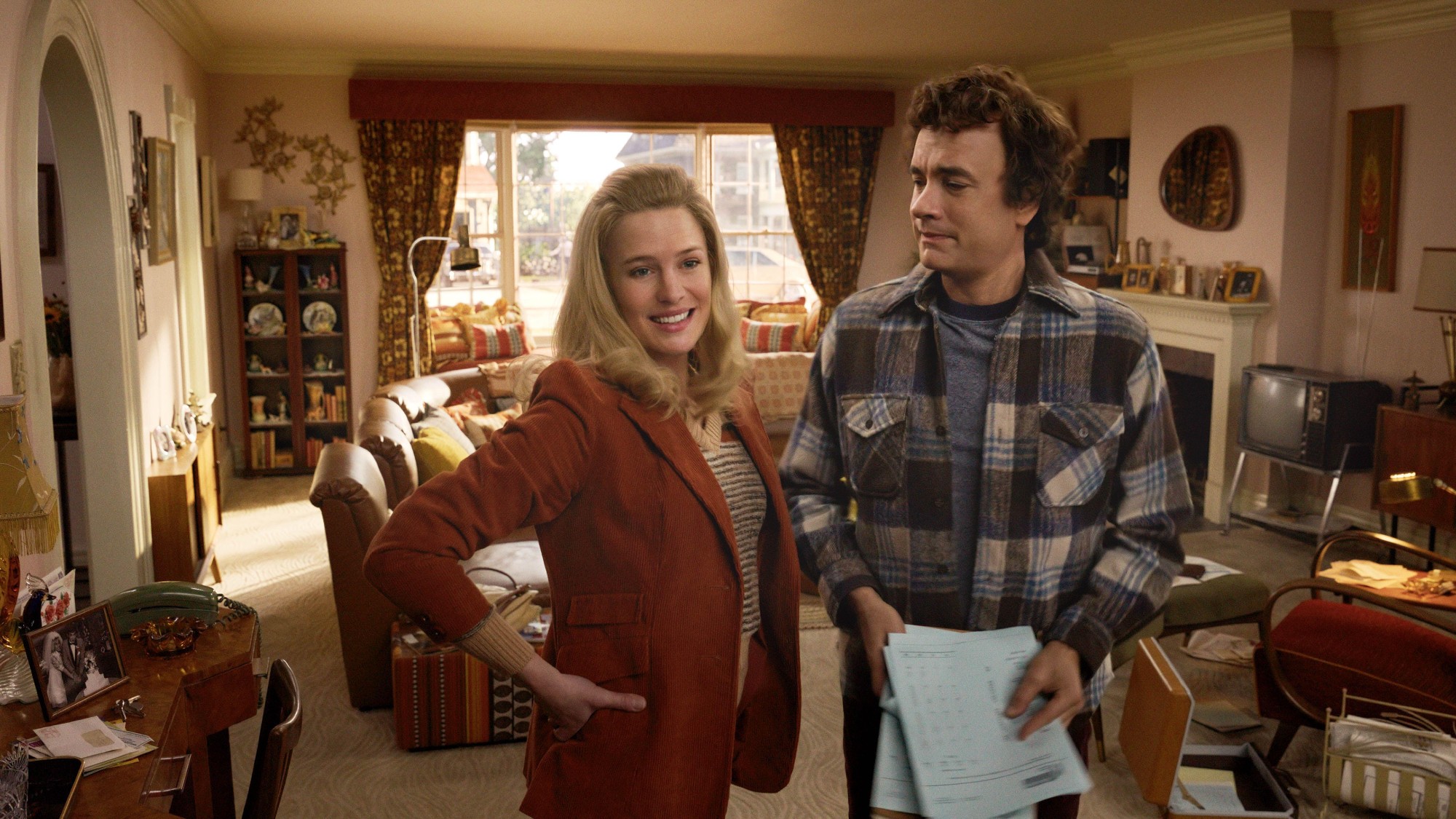Can AI tools be used to Hollywood's advantage?
It makes some aspects of the industry faster and cheaper. It will also put many people in the entertainment world out of work.


A free daily email with the biggest news stories of the day – and the best features from TheWeek.com
You are now subscribed
Your newsletter sign-up was successful
The film business has adjusted to many technological innovations over the years, including the advent of home video, digital cameras and CGI. But the latest development, artificial intelligence, is evolving with such great speed it's impossible to predict how it will impact filmmaking long-term. One thing is clear: AI has the potential to upend the industry.
In April 2023, Hollywood shut down for months after members of the Writers Guild of America and the Screen Actors Guild went on strike. One of the main concerns amid these disputes was "how to protect the livelihoods of union members from AI encroachment," said Devin Gordon at The New York Times. (Hollywood is not alone in grappling with this infiltration: AI is making similar waves in creative industries like music and fashion.)
Not everyone is concerned about AI's takeover. On the contrary, many in the entertainment industry are embracing its tools.
The Week
Escape your echo chamber. Get the facts behind the news, plus analysis from multiple perspectives.

Sign up for The Week's Free Newsletters
From our morning news briefing to a weekly Good News Newsletter, get the best of The Week delivered directly to your inbox.
From our morning news briefing to a weekly Good News Newsletter, get the best of The Week delivered directly to your inbox.
Benefits in innovation and cost
AI can be used to slash costs, a clear advantage in a struggling industry. Asian film and tech leaders who attended TIFFCOM, a business convention connected to the Tokyo International Film Festival, last month spotlighted the ability of generative AI to reduce expenses. Kevin D.C. Chang, the CEO of Metavision Co., South Korea, "demonstrated how AI tools could help him potentially reduce a $4.1 million production budget to an estimated production cost of $400,000" for his film "Cinque Terra," said Variety. The movie is set across five international locations, and "AI could reduce traditional location shooting costs while maintaining production quality."
There are two broader categories of AI application: generative AI, which can be used to assist artists in creating work, and agentic AI, which can be used to complete tasks. An example of the latter: an AI tool called Callaia reads scripts and generates coverage reports — a job usually done by junior studio executives.
One prominent use for generative AI is aging or de-aging actors. Robert Zemeckis' "Here," a film starring Tom Hanks and made in collaboration with a visual-effects startup called Metaphysic, follows a character from age 18 to 80. It was necessary to age Hanks up and down, so Metaphysic created a digital version of the actor. Persuading audiences they were seeing Hanks in the bloom of youth would have normally "required hundreds of VFX artists, tens of millions of dollars and months of postproduction work" — and major studios "don't spend that kind of money on movies like 'Here,'" said Gordon.
Hanks was excited by the prospect of taking on roles he would otherwise be "too old" for. "I read stuff all the time and I think, 'Oh, man, I'd kill to play this role, but I'm 68,'" he said to the Times.
A free daily email with the biggest news stories of the day – and the best features from TheWeek.com
'Many potential misuses'
Perhaps the most obvious problem with AI's Hollywood takeover is that it will eliminate jobs. In a January study surveying 300 leaders across the entertainment industry, "three-fourths of respondents indicated that AI tools supported the elimination, reduction or consolidation of jobs at their companies," said The Hollywood Reporter. The most vulnerable positions appear to be concept artists, sound engineers and voice actors; visual effects and post-production come next. Indie horror film "Late Night With the Devil" sparked controversy earlier this year after using AI-generated stills in place of work by graphic designers.
There are "many potential misuses" of AI, said Gordon, including appropriating actors' likenesses without their permission. AI-generated replicas of dead performers have been used in movies like "Furiosa" and "Alien: Romulus." Living actors may also start losing roles to dead ones. "For the voices of Mickey Mouse, Porky Pig, Snow White — every time a voice passes away, a new actor gets hired to play that voice," said Tim Friedlander, founder of the National Association of Voice Actors, to the BBC. "But what if you could use [Looney Tunes'] Mel Blanc forever?"
The quickness and cheapness of AI did not make "Here" a hit: The film currently sits at 36% on Rotten Tomatoes. "It's not just that the FX work is unsettling … it's also that it's kind of shoddy," said Benjamin Lee at The Guardian of Hanks' digitally altered face.
Still, the "Pandora's box of AI has likely already been unleashed," said the Reporter. "Most corners of production, from writers' rooms to VFX departments, have embraced generative AI tools," though many of them are doing so "quietly." "They can't admit it publicly because you still need artists for a lot of work," David Stripinis, a VFX artist who worked on "Avatar" and Marvel titles, said to the Reporter. "Right now, it's a PR problem more than a tech problem."
Anya Jaremko-Greenwold has worked as a story editor at The Week since 2024. She previously worked at FLOOD Magazine, Woman's World, First for Women, DGO Magazine and BOMB Magazine. Anya's culture writing has appeared in The Atlantic, Jezebel, Vice and the Los Angeles Review of Books, among others.
-
 Bad Bunny’s Super Bowl: A win for unity
Bad Bunny’s Super Bowl: A win for unityFeature The global superstar's halftime show was a celebration for everyone to enjoy
-
 Book reviews: ‘Bonfire of the Murdochs’ and ‘The Typewriter and the Guillotine’
Book reviews: ‘Bonfire of the Murdochs’ and ‘The Typewriter and the Guillotine’Feature New insights into the Murdoch family’s turmoil and a renowned journalist’s time in pre-World War II Paris
-
 Witkoff and Kushner tackle Ukraine, Iran in Geneva
Witkoff and Kushner tackle Ukraine, Iran in GenevaSpeed Read Steve Witkoff and Jared Kushner held negotiations aimed at securing a nuclear deal with Iran and an end to Russia’s war in Ukraine
-
 Microdramas are booming
Microdramas are boomingUnder the radar Scroll to watch a whole movie
-
 Are Hollywood ‘showmances’ losing their shine?
Are Hollywood ‘showmances’ losing their shine?In The Spotlight Teasing real-life romance between movie leads is an old Tinseltown publicity trick but modern audiences may have had enough
-
 Film reviews: ‘Wuthering Heights,’ ‘Good Luck, Have Fun, Don’t Die,’ and ‘Sirat’
Film reviews: ‘Wuthering Heights,’ ‘Good Luck, Have Fun, Don’t Die,’ and ‘Sirat’Feature An inconvenient love torments a would-be couple, a gonzo time traveler seeks to save humanity from AI, and a father’s desperate search goes deeply sideways
-
 The biggest box office flops of the 21st century
The biggest box office flops of the 21st centuryin depth Unnecessary remakes and turgid, expensive CGI-fests highlight this list of these most notorious box-office losers
-
 The 8 best superhero movies of all time
The 8 best superhero movies of all timethe week recommends A genre that now dominates studio filmmaking once struggled to get anyone to take it seriously
-
 Josh D’Amaro: the theme park guru taking over Disney
Josh D’Amaro: the theme park guru taking over DisneyIn the Spotlight D’Amaro has worked for the Mouse House for 27 years
-
 Heated Rivalry, Bridgerton and why sex still sells on TV
Heated Rivalry, Bridgerton and why sex still sells on TVTalking Point Gen Z – often stereotyped as prudish and puritanical – are attracted to authenticity
-
 Film reviews: ‘Send Help’ and ‘Private Life’
Film reviews: ‘Send Help’ and ‘Private Life’Feature An office doormat is stranded alone with her awful boss and a frazzled therapist turns amateur murder investigator
